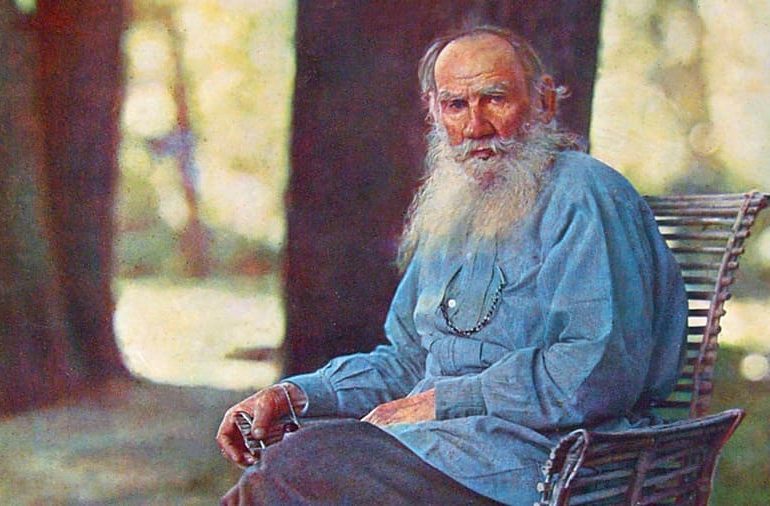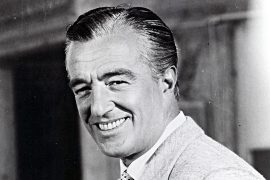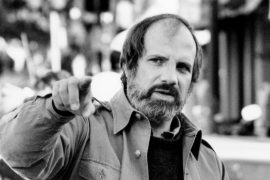The Russian writer and thinker is one of the greatest writers in world literature. His major work is the large-scale epic War and Peace, which emerged as one of the world’s finest historical, biographical, and memoir novels. He had a decisive influence on the literary genre of the historical novel. His works often distinguish the inner monologue as introspection. One of his most striking stylistic devices is alienation. Lev Nikolayevich Count Tolstoy not only made a name for himself as an epic poet and dramatist, but also as an internationally renowned lay theologian…
Lev Nikolayevich Count Tolstoy was born on the Yasnaya Polyana estate on August 28, 1828, the son of Count and landowner Nikolai Ilyich Tolstoy.
Lew Nikolayevich Count Tolstoy was orphaned at an early age, his mother died in 1830. His father also died seven years later. After Tolstoy’s guardian died in 1841, the thirteen-year-old moved to Kazan and lived with an aunt. In 1844 he began to study oriental languages and law. In 1847 he broke off his studies because he was not really interested in the subjects. He returned to the family estate Yasnaya Polyana, where he worked in administration. In 1851 he began his military service in the Caucasus and on the Danube front, among other places, and ended it in 1856. In the meantime, in 1852, he created his first work entitled “Detstvo” (in English: “Childhood”), an autobiographical sketch. The play became a success. This was followed in 1854 by the equally autobiographical title “Boy Years”.
The trilogy was completed in 1857 with the work “Juvenile Years”. In the same year he undertook a journey that took him to Switzerland, France, Italy and Germany. In the period from 1860 to 1861 Tolstoy stayed abroad again, where he met the German writer Berthold Auerbach in Dresden, the Russian writer Gercen Herzen in London and the French thinker, socialist and political theorist Pierre Joseph Proudhon in Brussels. After his return he founded a school on the family estate. He was not only active as a practical educator in the lessons for farm children, but also wrote theoretical writings. In 1862 he married Sophia Andrejevna Behrs, a daughter of a Moscow doctor, with whom he lived on the estate. Leo Tolstoy processed his impressions from the Crimean War in three stories. In this as well as in the novella “Kosaken” from the year 1863 (in German translation from the year 1885) Tolstoy turned to the common people.
Already in his first creative periods, theological themes appeared in his writings, which increased after his marriage. Tolstoy’s constant religious search is reflected throughout his work. Despite the common wealth of children, the marriage turned out to be difficult. World-renowned literary works such as “War and Peace” or “Anna Karenina” (1875-1877) were created during this time. In this phase he reached his literary peak. Nevertheless, he experienced a personal crisis during this time, which was expressed in writing in 1879 in the manuscript “Bechte”. The paper was distributed throughout Russia in a mere handwritten version. It would later be printed in Geneva in 1884. Leo Tolstoy was extensively involved in the social field. He supported the peasant reforms in 1873, he organized aid for farmers who were affected by crop failures, he publicly advocated non-violence in politics, or he campaigned against serfdom and death sentences. Tolstoy not only dealt critically with the church, but also with the state and society.
A series of critical church and religious writings followed, such as “Critique of Dogmatic Religion” in 1880/81, “What I Believe” in 1883, “About Life” in 1887, “The Kreutzer Sonata” in 1889, “Das Heaven within you” in 1893 or “Resurrection” in 1899. These works show Tolstoy’s development towards a Christianity from a rationalistic and ethical point of view, in which he nevertheless allowed mystical elements and orthodox traditions. His view of free Christianity culminated in “not resisting evil” as a counterpoint to the traditional church. As a result of his deviant line, Tolstoy was excommunicated in 1901. From 1882 he was under police surveillance. Nevertheless, in 1900 he became an honorary member of the Russian Academy of Sciences. The following year he turned down the Nobel Prize. In his theological writings in particular, the lay theologian and philosopher of religion Leo Tolstoy showed extensive effects that are still not properly appreciated today. They paved the way to Russian Orthodoxy for many people in the Soviet Union.
Even the evangelical theology adopted his works. His commentary on the Sermon on the Mount paved the way for a political theology. Tolstoy not only spent his life searching for religious insights, but also for the corresponding personal way of life. The contrast between his spiritual insights and the life he lived was particularly difficult for him in everyday family life. So in 1910 he decided to distance himself from his family and his children. During this escape from family life, death overtook him.
Lev Nikolayevich Count Tolstoy died on November 7, 1910 at the Astapovo railway station.
Why is Tolstoy so famous?
After the outbreak of the Crimean War, he experienced the trench warfare in the besieged fortress of Sevastopol in 1854. The realistic reports from this war (1855: Sevastopol Tales) made him known as a writer early on.
What to read by Tolstoy?
- Anna Karenina (1887)
- War and Peace (1869)
- The Kreutzer Sonata (1889)
- Sevastopol Sketches (1855)
- Resurrection (1899)
- The Cossacks (1863)
- A Confession (1882)
- The Kingdom of God Is Within You (1894)
- What I Believe (1885)
What did Tolstoy write?
His work includes novels, short stories, plays and philosophical writings; the two great novels War and Peace (1868) and Anna Karenina (1877) brought him world fame. Since then, Tolstoy has been one of the most important authors in literary history.
Was Tolstoy a vegetarian?
Tolstoy became a vegetarian at the age of fifty. From then on, apart from bread, he mainly ate cereal, potato and vegetable soups, such as those served today in chic cafés in Moscow and St. Petersburg, especially during Lent. The writer claimed that his health had improved noticeably.





